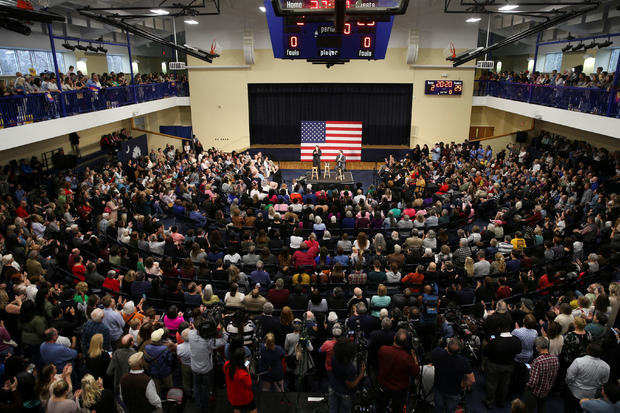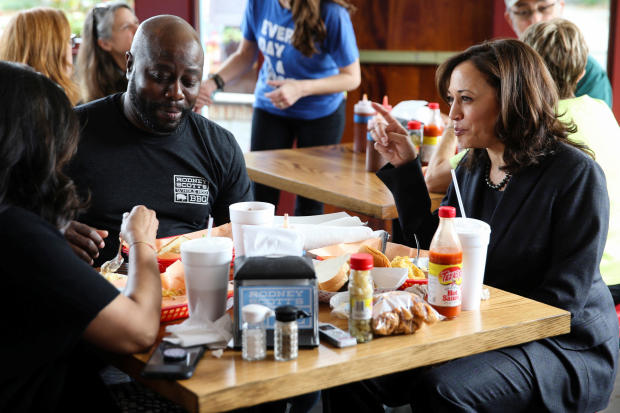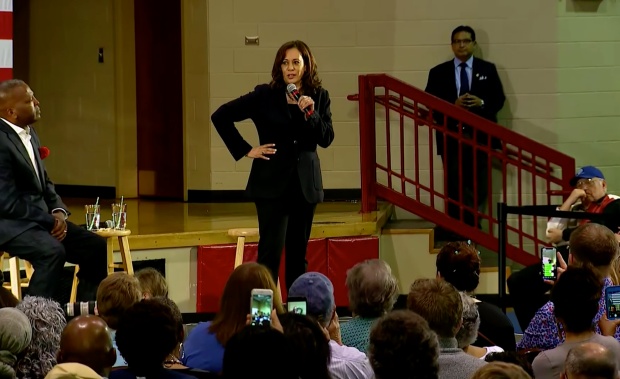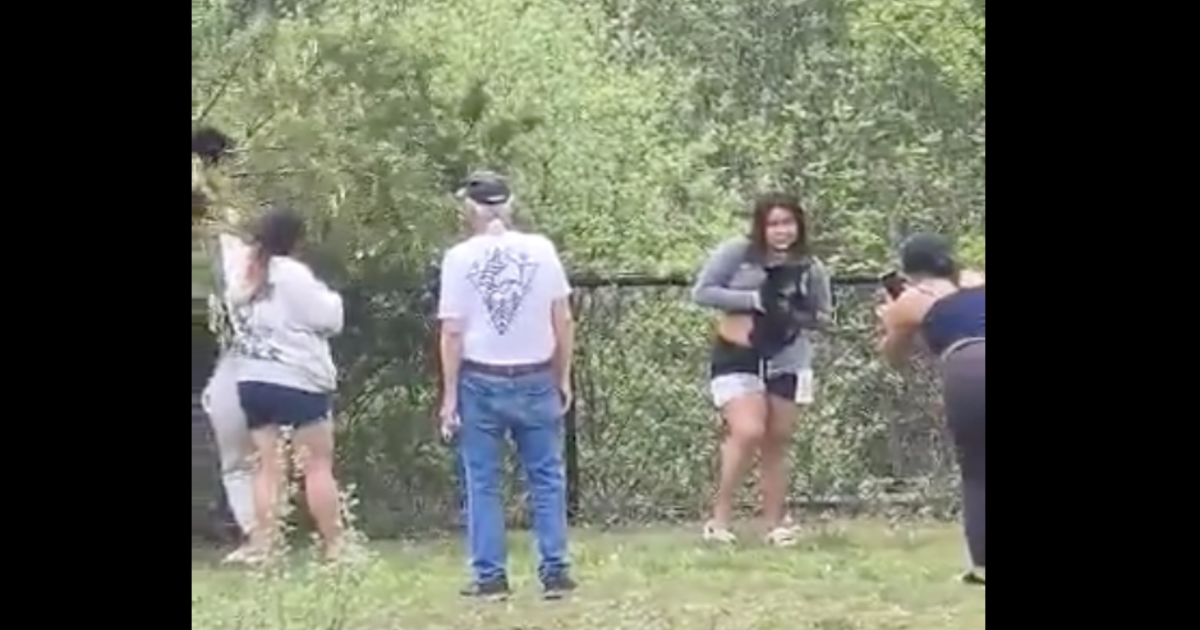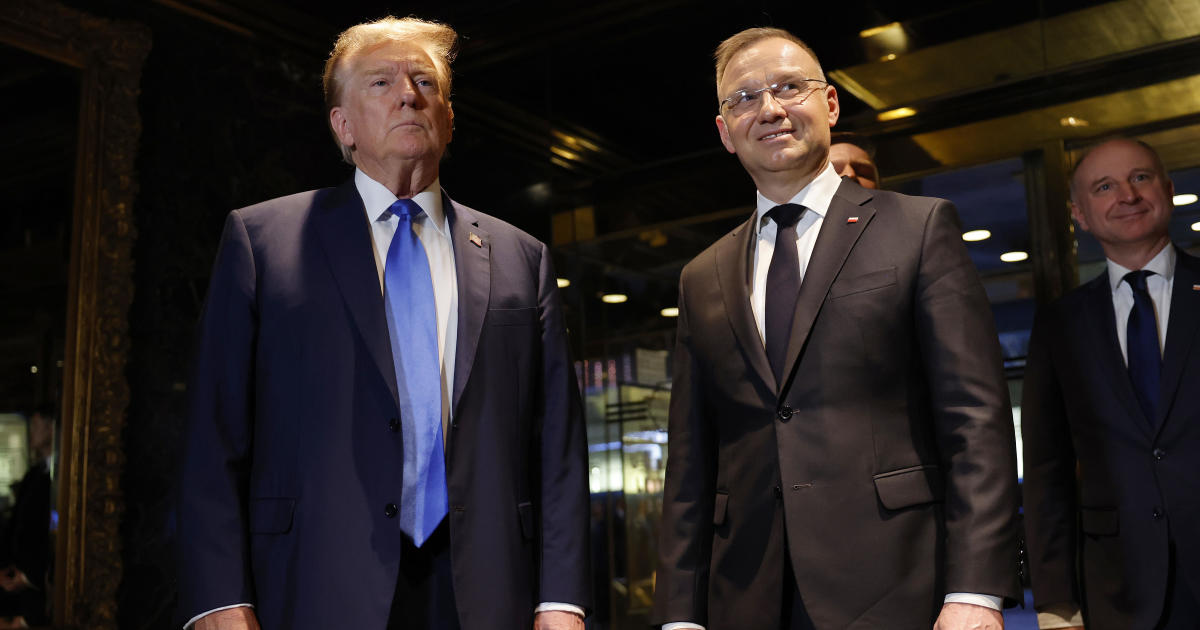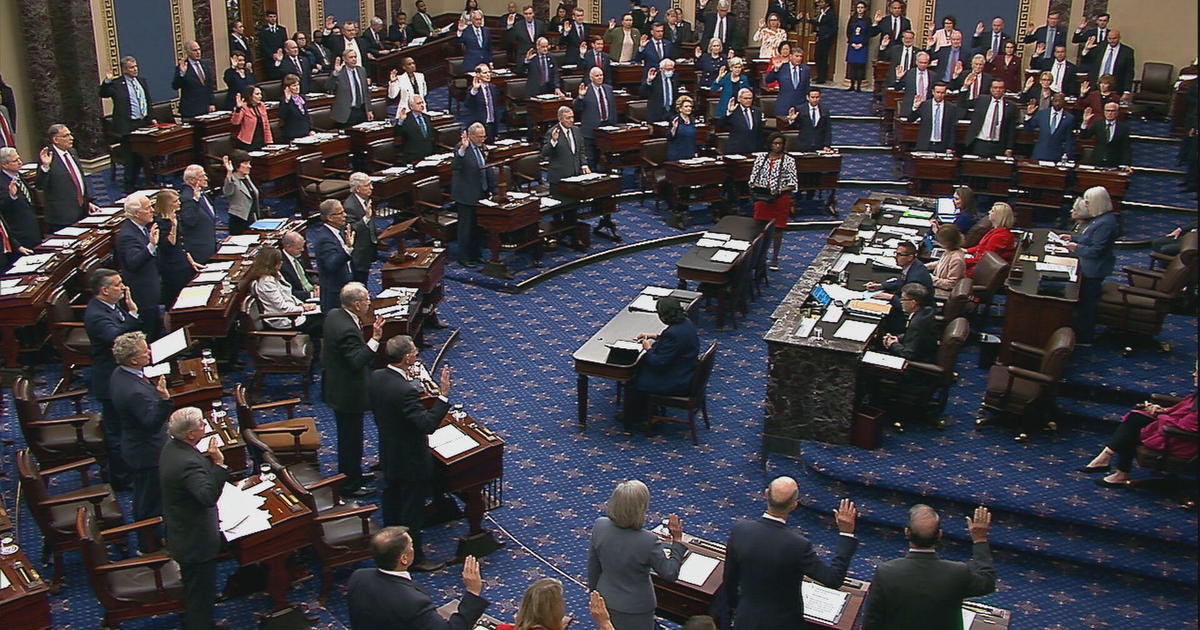Kamala Harris sets her sights on South Carolina with first campaign swing
Columbia, S.C. — Democrat Kamala Harris represents California in the Senate, but her inaugural campaign swing through South Carolina over the weekend sent a clear signal that she sees the Palmetto State as the gateway to winning her party's nomination for president.
With its prime spot in the 2020 calendar and its high concentration of African American voters, the South Carolina primary could provide a launching pad for Democratic presidential hopefuls. And Harris' "truth and justice" campaign pitch seemed tailormade for competing in the state, which is scheduled to hold its primary on Feb. 29, 2020.
Over the course of two town halls in North Charleston and Columbia — which book-ended stops through small businesses owned by black women, lunch at Rodney Scott's BBQ and a visit to Emanuel AME, the historically black church where nine worshipers were gunned down in 2015 — Harris advocated for changes to the criminal justice and education systems and the nation's gun laws, while touting bail reform legislation and an anti-lynching bill she co-authored in the Senate. She recounted how her immigrant parents — her father from Jamaica and her mother from India — had met while both were activists during the civil rights movement.
"In America today, a mother or father has to sit down with their 12-year-old son and talk to him about how he may be arrested, or may be shot because of the color of his skin," Harris said at a town hall Friday evening attended by 1,000 people at Royal Family Life Center in North Charleston. "That is not justice."
"Putting money in public education is smarter than putting money in mass incarceration," Harris said Saturday afternoon at the second town hall, held at the Health and Wellness Center at Brookland Baptist Church in Columbia. "We pretend to be a society that cares about education, but not so much the education of other people's children."
Harris frequently referenced her experience as a prosecutor to explain her approach to systemic reforms on matters of race and inequality. But that same experience also presents liabilities for Harris in the Democratic primary, with her record as district attorney in San Francisco and as attorney general of California already coming under scrutiny and attacks from some progressives.
Harris touted a re-entry program designed to reduce recidivism known as "Back on Track" from her time as district attorney. "I tried to explain to them the concept of redemption ... Isn't it a sign of a civil society that you allow people to earn your way back?" she recalled of the 2005 initiative. She referenced her push for anti-bias training for police officers, California's "Open Justice" data sharing program and her work in the Senate with Republican Rand Paul of Kentucky to reform the bail system they view as discriminatory.
But critics argue her record of action on criminal justice is mixed and at times at odds with the cause of social justice and anti-discrimination. As attorney general from 2011 to 2017, Harris declined to support a measure that would have required her office to independently investigate shootings by police officers, and didn't weigh in on a ballot initiative to reduce low-level criminal sentences. She defended the death penalty in her role as the state's top law enforcement officer, even though she personally opposed it. And she established a strict anti-truancy program that was seen as punishing parents.
Harris has defended her positions by referencing a "tough on crime" mentality of the time, arguing she aimed to play a role in reform from the inside instead of from the outside.
"For too long, we have been offered a false choice — either you're soft on crime or tough on crime — instead of asking, 'Are we smart on crime?'" she said in Columbia.
At a CNN town hall in Iowa in January, Harris was asked how she reconciles her "contradictory past." The senator said, in part, that "there are some people who just believe that prosecutors shouldn't exist, and I don't think I'm ever going to satisfy them. But I will also say that there is so much more work to do. And do I wish I could have done more? Absolutely."
Beyond criminal justice, Harris spoke about other national issues with particular relevance in South Carolina, including climate change and offshore drilling, teacher pay and middle class wages.
"The economy isn't working for working people," Harris said repeatedly throughout her stops here. Political leaders are engaging in "science fiction instead of science fact," was another line of her stump speech. "I have met teachers who are working three jobs to put food on the table and pay the bills," she told the audience in Columbia, as the state legislature debates a public school teacher wage increase.
At other moments, Harris was light on specifics. When asked by a questioner at the town hall in Columbia how she can "square the circle" of supporting Medicare for All and the Green New Deal resolution at a time of rising national debt, Harris replied, "Our opponents will have you believe it's all about doling out money. It's about an investment." On the Green New Deal, Harris said, "I support the goals, and we're going to have to figure out a way to get there ... I care about the environment not because I have a strong desire to hug a tree, but I have a strong desire to hug a baby."
When asked by reporters about the recent decision by California Gov. Gavin Newsom, a fellow Democrat who endorsed Harris on Friday, to scale back the state's high-speed rail plan, the senator she had not had the chance to talk to him about the choice. Newsom's decision furthered criticism of the ambitious goals found in the Green New Deal framework.
And when asked whether she would declare a state of emergency over gun violence or climate change, in light of President Trump's declaration to free up border security funding, Harris said she wouldn't speculate about what she would do. "I can tell you it is absolutely a subject, rightly, of litigation," she said, referring to the president's order. "This is an emergency of this president's own creation, for political purposes, in a very irresponsible way."
With the South Carolina primary still more than a year away, Democratic voters who attended Harris' events in the state said they were at the listening-and-learning stage of their decision-making process.
"I don't care who the person is, man or woman, whatever color they are, I want to know what they have to say and how that's going to impact my life," said Garvin Ladderly, a retiree from North Charleston. "What I thought middle class life [was] going to be is not what it is. You have people living payday to payday."
"I think a woman will be able to bring America back together," said his wife Carmen Ladderly, who works for a utility company. "The one thing about Trump is that he made us realize that there is still this separation between white and black people."
"I'm disappointed in America right now," said Sandy Taylor, a retiree from Columbia. "I know that the world cannot be perfect, but we need to be moving more toward it than away from it — a more perfect union."
Naida Rutherford, who owns a boutique and runs a foundation aimed at helping disadvantaged people dress for success, met Harris as the senator toured her Columbia shop.
"The fact that I have someone that looks like me, that speaks my language, that understands what it's like to be a woman of color in a very racially divided country at times, that's huge to me," Rutherford told CBS News. "I feel like we are living history right now."
Yet even with the nuances of the South Carolina primary, voters here consistently identified a key requirement for their eventual nominee: They want someone who can defeat President Trump.
"Polls show voters are looking for a candidate who can win ... We're desperate," said one woman who asked Harris how she sets herself apart from the growing pack of contenders.
Harris gave a generic answer about there being so much "at stake," before settling on her pitch to be the "fighter on the stage who knows how to fight. I do."
